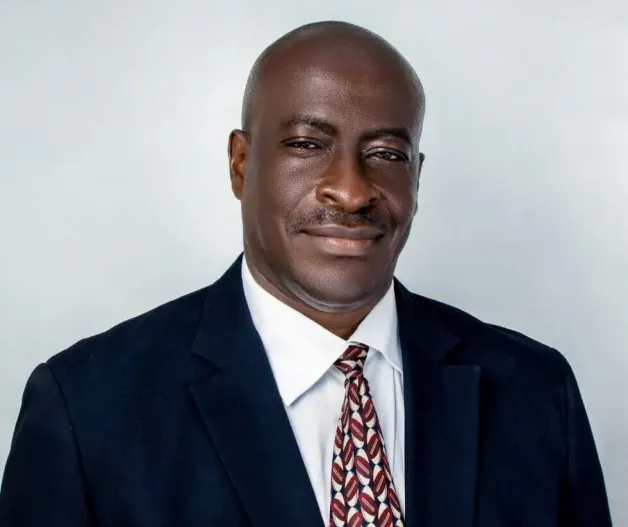A young African man – after about ten years of working in a regular job, attending church regularly, attending pastoral classes, and holding bible study sessions in his home – becomes convinced about the call of God in his life and obeys this call to start his own church. The first few months are hard as he and his wife toil tirelessly, renting school halls to hold church services which means that they have to set up the hall on Sunday mornings and take out the church stuff after Sunday service.
By the second year, the church has grown enough in members, tithes and offerings that it is able to rent its own building. Within five years, the church is holding two services on Sunday because space is tight; and by the sixth year, the church moves to rent a new location while it is building its own building.
Ten years after starting, the pastor’s church has over a thousand members who call him ‘Pastor’, ‘Reverend’ or ‘Daddy’ and the church is thriving. To satisfy legal requirements, the church has a board made up of the Pastor, his wife, his childhood best friend (who happens to be an accountant), and two old church members in their seventies.
By year 15 the Pastor has completed his doctorate degree, adopted the title of ‘Bishop’, ordained other Pastors in his church, changed his car and moved into a bigger house. His congregation is growing and the congregants are also becoming more educated, more economically successful, and growing spiritually. Everything appears to be going very well. While doing a massive fundraising drive for a new campus that the church is planning to build, the Bishop fields some questions from his increasingly more-educated congregation about the state of church finances.
The Bishop becomes vague as he talks about the church finances and certain members press a bit more, quietly, for transparency about the church finances. If the church is asking for members to give more sacrificially and has a daunting fundraising target, why can’t the church leader share the state of the church’s finances? What oversight role is the Board playing regarding how the money, once collected, is spent at the church? How was the decision reached to launch this fundraising drive and invest in the new campus?
As some members ask these questions and attempt to speak to some board members, it becomes apparent to them that the church’s Board of Directors performs little more than a rubber-stamping role and the Bishop has carte-blanche to do whatever he deems is right as leader of the church.
The lack of oversight concerns a few members – who leave the church; but their departure is barely noticed as the church is very good at bringing on board new members. And as long as members do not get close enough to internal workings of the church, they are quite happy because they are spiritually fed and experience growth. By year thirty, the Bishop and his wife have built a valuable and recognisable entity that spans multiple branches, generates millions of dollars in revenue each year, and has blessed millions of people.
Unfortunately, the Bishop is getting old and his health starts to fade. His wife does not have the gift of teaching or preaching that he has, and the Pastors who have the skills and abilities to take over the church have left to start their own because they were dissatisfied with the lack of transparency and inclusion they observed and experienced while serving under ‘Daddy’.
The Bishop’s church starts to experience stagnation – and after a couple of attempts at restructuring the church administration result in failure, the church eventually stops growing. Eventually, the Bishop retires and the Board appoints a young man thirty years his junior to take over the declining franchise that has spawned plenty of other Pastors but endured negative growth.
If this story sounds familiar, it is because it has been played out throughout Africa in the past forty years. This story has been played out not only in the religious sector, but also in the private sector of Africa. Africa is replete with stories of talented, driven and ambitious entrepreneurs who have started businesses, grown them successfully to become multi-million dollar enterprises… and then become victims of their own success.
The passion, humility, vision and integrity that fuelled their success were slowly and stealthily replaced by pride, a sense of entitlement, myopia and corruption as they adopted the attitude of “l’etat c’est moi” that is an indication of hubris (extreme pride) that eventually precedes a decline. Instead of listening to their customers and adjusting to their needs, these founders became convinced that the same methods which brought them from obscurity to prominence will ensure they stay at the top of the game – forgetting that when they were toiling in obscurity someone else was enjoying prominence and fame, and had become blinded by their own success.
Many of us know leaders who have gone through this cycle. If you don’t know anyone that has, then it might be you that is going through it…
In every leader lurks a dictator with the potential to propel an organisation to great heights and assure the organisation’s long-term demise…all at the same time.
Many African mega-churches, medium-sized African businesses and local NGOs have this common leadership problem: after decades of benefitting from the drive, the vision, the indefatigable and seemingly-inexhaustible energy of their founders, these entities have become victims of their founders’ hidden propensity for dictatorship.
The same skills, talents and stubbornness which were absolutely essential for the entity to grow from embryonic stage to a going concern now threatens its long-term future and success because of the question that hovers over the organisation like a Sword of Damocles: what would happen to the organisation if the founder were to die, or become suddenly unavailable due to illness or other life events? How many organisations, after decades of benefitting from the vision and energy of one, have become victims of the tyranny of one?
According to succession research conducted by PWC, in African family-owned businesses only 25 percent of them survive the retirement or death of its founder: despite the fact that 90 percent of family-owned business leaders want their companies to last longer than three generations, less than 10 percent of them do.
So what can you do, as a leader, to protect your organisation from yourself? How can you ensure that even as you are building the organisation and making it successful, you are also shielding it from the dictator within? Here are two things you can do:
Establish/recruit an independent and functional board of directors with the authority to fire you. I am sorry to be so blunt, but I find the words ‘corporate governance’ sometimes does not convey the true meaning of what is needed in every organisation. Every organisation or company needs to be governed collectively by a group of experienced professionals who collectively have the mandate and authority to hold the organisation’s CEO accountable for results and conduct – including and up to replacing him with another CEO that may be a better fit for the organisation.
As scary as this may sound, it is one of the most important gifts you can give to your organisation…the gift of Founder Accountability. Power corrupts, and absolute power corrupts absolutely. As the founder of your organisation you have absolute power, and it can corrupt you and destroy the future of the organisation that you have spent a lifetime trying to build. Why not protect it by making yourself accountable? Do not fill the board with friends and family; that will not serve the organisation’s needs.
Recruit people who don’t owe you anything and have careers and reputations that you did not help them to build. If you are an icon in your community, recruit people who don’t come from your community and will not be in awe of your achievements; if you are a Church Founder, recruit people who do not belong to your church. This is how you get an independent and functioning board that will do its job: seek the organisation’s interests and prioritise those interests above your personal interests.
- Get a coach. Your coach is an accountability partner and will be one of the first persons to let you know when you are making the dangerous transition from humility to hubris.
Dear African leader, imagine if Africans did not have to start from ground zero in each new generation to build the companies and organisations; it would solve the problems and create the jobs needed in Africa. Imagine if we did not have to wait until the founders of successful companies suffer a decline in their mental and physical capacities before new energy is pumped into their organisations to take them to the next level. Imagine if hundreds of successful companies and institutions did not have to suffer decline because of the myopia of their founders.
Africa would become a powerhouse of economic activity, as one generation of leaders would take over from another like a runner receiving the baton from another runner while at full stride and near-top-end speed in order to ensure the organisation does not miss a beat or lose ground to global competition. Africa needs you to insulate your organisation from your own shortcomings. Millions of young Africans, some yet unborn, are depending on you to do this.











